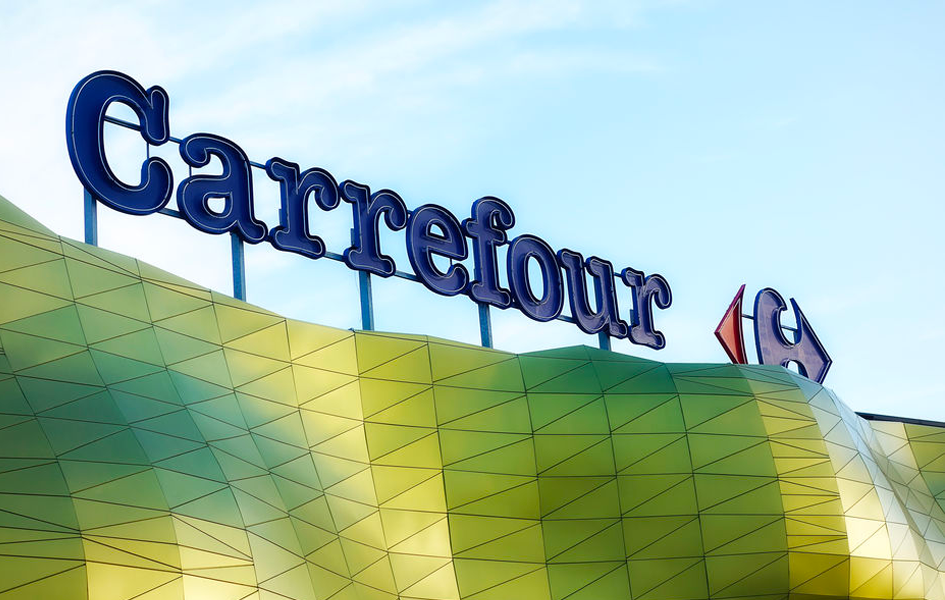Sustainable Leaders Forum Plenary | Carrefour x Artefact: How Artefact is helping Carrefour achieve carbon neutrality for its e-commerce activity
How Artefact is helping Carrefour achieve carbon neutrality for its e-commerce activity?
Carrefour Group is the leading European retailer and the world’s second largest retailer, and is present in more than 30 countries. Carrefour’s international profile raises a number of ecological challenges and a desire to offer its customers, regardless of their level of awareness, quality food and services accessible to all.
The Group’s aim is to become the world leader in food system transformation for all by committing to four major objectives, including achieving carbon neutrality by 2030 for its e-commerce activities.
To achieve carbon neutrality, three main levers of action have been identified:
This aim also provides a triple opportunity for the Group’s e-commerce activity: reducing its operating costs, improving its NPS score (customer satisfaction indicator) and anticipating legal changes.
To seize these opportunities and take concrete action on each of these levers, Carrefour must be able to measure all greenhouse gas emissions by drawing on real data that compiles all data storage, transport and logistics activities, from first click to final delivery, whether to the home or by store pickup.
Defining a reliable, actionable, transparent carbon measure for Carrefour and its customers
“The challenge we gave Artefact was to calculate the CO2 emission of an online order.How much CO2 will a customer produce if their order is delivered or if it’s picked up at the store?”Bertrand Swiderski – Chief Sustainability Officer, Carrefour
The first step for the Artefact and Carrefour teams was to agree on the scope of action for measuring this carbon footprint. They decided to limit themselves to measuring greenhouse gas emissions generated by e-commerce orders in 2021.
The second step was to collect activity data in order to convert it into carbon emissions. As this data wasn’t already present and documented in Carrefour’s data platform, the business teams (logistics, warehouses, e-commerce) had to be brought together to obtain it. This step proved to be crucial to the operation’s success, as it allowed all stakeholders to become ambassadors for the group’s “carbon neutrality 2030” objective.
Carrefour’s strategy for measuring its carbon footprint was based on a systemic, unifying, long-term, iterative approach. The strategy was successful thanks to the participation of over 30 employees and the involvement of Carrefour customers via their “Engaged Consumers Clubs”.
“Today, we recognize that consumers are becoming experts on these topics. They want to understand how things are done and want to challenge companies. Thanks to them, the project has matured.”Léonard Cahon – Consulting Manager, Artefact
Encouraged by these initial results, Carrefour will continue its commitment by publishing the carbon footprint of each of its orders on its e-commerce site in the near future.
“Soon, customers will clearly see the number of kilograms per CO2 on their orders, thanks to the insights gained from our carbon assessment.”Manuel Chatain E-commerce CSR Manager Carrefour
Opening a wider field of possibilities and ecological alternatives
By analyzing its carbon footprint and implementing this first measure, Carrefour now has a way to pilot its e-commerce carbon emissions reduction strategy. The group can now encourage its customers to review their consumption patterns in order to be more responsible, encourage its service providers to reduce their emissions, and also promote internal awareness by proposing several possible levers of action:
And to ensure the sustainability of this measurement and its easy use by the teams, Artefact teams worked on three elements:
Using data as a key lever to help businesses achieve their environmental objectives
Carrefour’s e-commerce, supply chain and logistics platform teams worked together to meet this challenge, supported by the collaboration and expertise of the Artefact, Aktio and Google teams. The project is part of Artefact’s “Data for Sustainability” solutions, which aim to create a positive impact on the environment through data by accelerating the ecological transformation of businesses.
“We expected a very clear vision of what each basket order would emit. Our request was complex, but Artefact responded to it with great dynamism and agility.”Bertrand Swiderski – Chief Sustainability Officer, Carrefour
“At Artefact, we believe data will play a major role in helping companies achieve their carbon neutrality goals.”Vincent Blaclard – Partner, Artefact

 CLIENT CASES
CLIENT CASES




